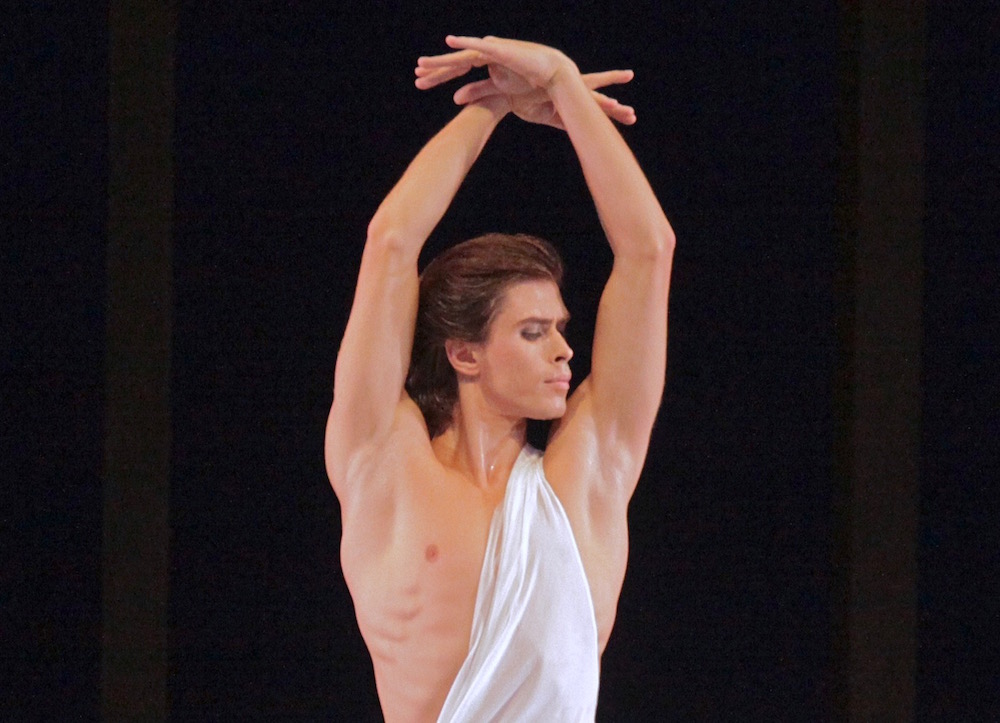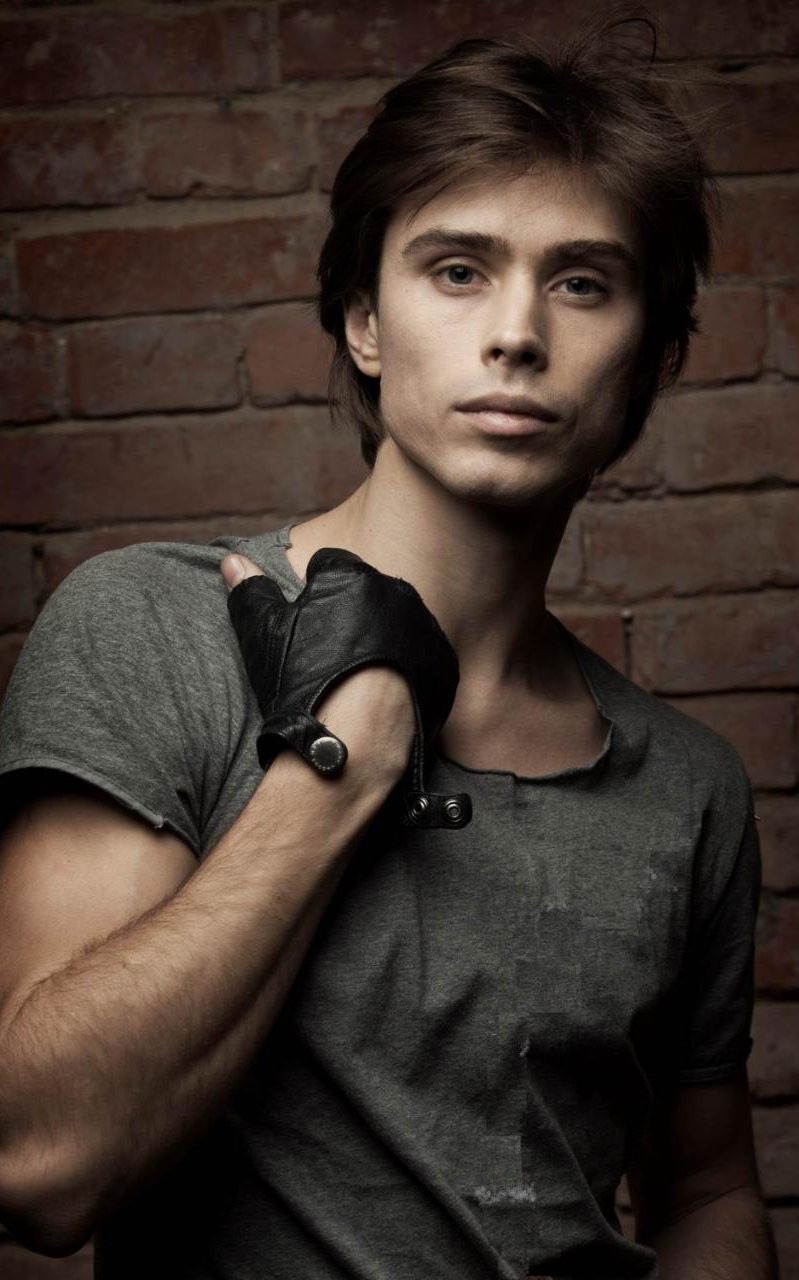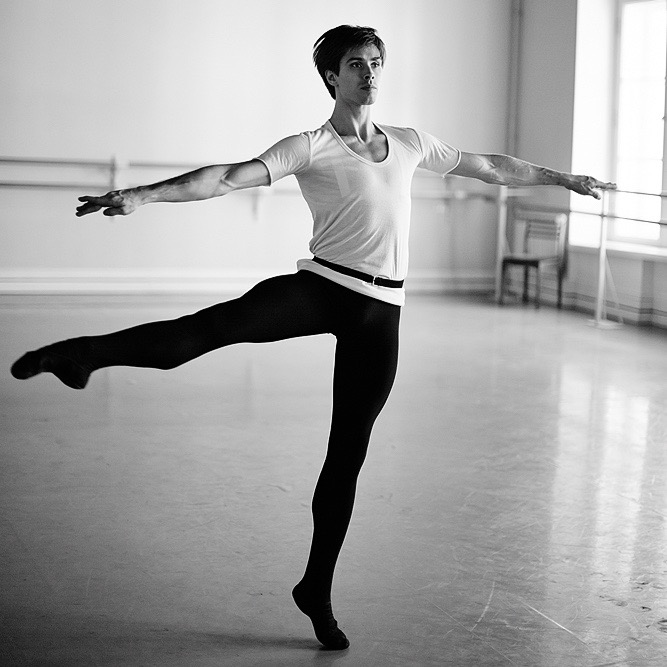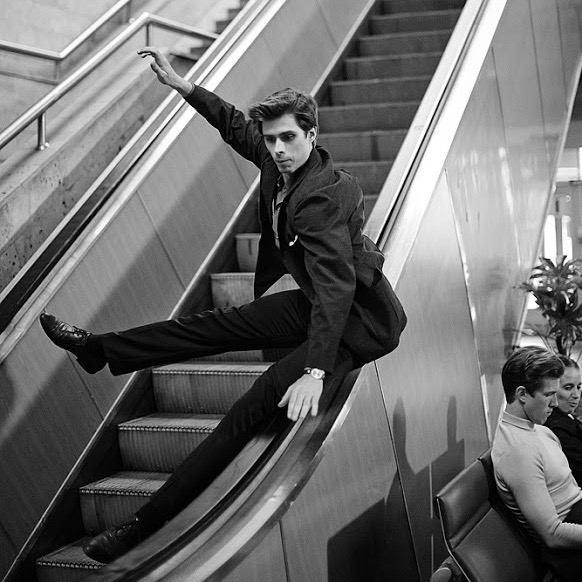Bolshoi star Artem Ovcharenko interview: from Russia with ballet pumps — The Telegraph
- Details
BOLSHOI STAR ARTEM OVCHARENKO INTERVIEW: FROM RUSSIA WITH BALLET PUMPS
The Telegraph — 19 June, 2016

Photo © Damir Yusupov - Artem Ovcharenko as Apollo
The Bolshoi’s bright new star tells Mark Monahan why he refuses to dwell on the company’s troubles – and how ballet can save lives
Artem Ovcharenko was only 12 when he made his stage debut in his home town of Dnipropetrovsk, Ukraine. After taking ballet classes for a year he was pulled, without warning, into a local production of the 19th-century romantic caper Don Quixote. “They said: 'Come up on stage, like an extra’,” he tells me, “and they gave me this tambourine and said, 'Go! Go! Go!’ So I got on stage, and stared out into this big, dark space, although I knew there were people somewhere out there. And it hit me: this was where I wanted to be. It was an extraordinary moment for me, like a rabbit in the headlights.”
By chance, it is also in a production of Don Quixote that I catch Ovcharenko in Moscow, back in April, ahead of the Bolshoi’s forthcoming three-week residency in Covent Garden – but his startled-rabbit days are long behind him. Playing the lovestruck barber Basilio to Olga Smirnova’s innkeeper’s daughter Kitri, Ovcharenko delivers a performance that is a first-rate fusion of emotional exuberance and unflashy technical aplomb, from his poetic phrasing and easy elevation to his impeccably chivalrous partnering of the exquisite St Petersburger.
It is, in short, the sort of performance that makes the Bolshoi’s return to these shores next month – its first stay here since 2013 – such a particularly exciting prospect, especially given that Ovcharenko himself will be starring in three of the five shows on offer: Don Quixote (opposite Margarita Shrainer), the time-honoured moonlit classic Swan Lake (with Yulia Stepanova), and Ballets de Monte Carlo director Jean-Christophe Maillot’s 2014 adaptation of The Taming of the Shrew (with Kristina Kretova and Nina Kaptsova), here getting its UK debut.
Also on the Covent Garden slate are the evergreen piratical romp Le Corsaire and former Bolshoi boss Alexei Ratmansky’s 2008 reworking of The Flames of Paris (a big hit last time the Bolshoi visited). And among others on the Bolshoi's line-up are the likes of Svetlana Zakharova, Maria Alexandrova, Denis Rodkin and Semyon Chudin, stellar talents all.

Photo © from Artem Ovcharenko's private archive
Ovcharenko has danced at Covent Garden twice before: first in 2010 and then, as a newly appointed principal, in 2013, when his notably princely Prince in another late-19th-century staple – Sleeping Beauty – earned him rave reviews. It is, however, for a more recent and a very different sort of performance that Britons may also now know him.
Last December, Ovcharenko was the titular star of BBC2’s Rudolf Nureyev – Dance to Freedom, the substantial and well received documentary-cum-dramatic reconstruction of the Nureyev’s famous defection to the West in June, 1961, while touring with the Kirov in Paris. (It is still available to watch on vimeo.com.)
“The director, Richard [Curson] Smith, saw these pictures of me that were taken in Brooklyn for Vogue magazine,” says the likeable, serious-minded 29-year-old, speaking to me through an interpreter when we meet in Moscow. “And, from certain angles, he saw Nureyev.”
Certainly, Ovcharenko’s combination of world-class technique and world-class cheekbones made him a natural for the part of the great Tartar who gave British dance such a magnificent shot in the arm when he joined the Royal Ballet in 1962, his partnership with the considerably older Margot Fonteyn going on to be one of the art form’s all-time greatest. Ovcharenko dived into the project with typical artistry, reading extensively about Nureyev and consulting the works of both Stanislavski and Michael Chekhov for acting tips.
And yet this must, I suggest, have been a curious experience for Ovcharenko. Male ballet-dancers are used to portraying farmhands and foresters, lovers and losers, princes and dukes, puppets and fauns – even the odd cockerel. What dancers as good as never have to portray, however, is another, real-life dancer. An individual’s performance style is, after all, as unique as a fingerprint: how did Ovcharenko tailor his own, markedly refined movements to the more primal volatility of Nureyev’s?
“I was very keen,” confirms Ovcharenko, “not just to play him correctly, but also to dance like him, but without making it a caricature. If you look at the way he was dancing in his younger days, people were already saying that he was a genius on stage – but technically bad. But I feared that if I simply emphasised that, it would be too obvious.”
Then, he had an idea. “I took this ‘variation’ from Corsaire that Nureyev is dancing in the Tchaikovsky Hall,” he says, “and I asked for the tempo to be sped up. When you have to dance that fast, without thinking about technique, then of course some little mistakes will pop up, something not ‘academic’, but it also allowed me to capture Nureyev’s dynamism and this energy. For me, it felt very convincing and truthful.”

Artem Ovcharenko in 'Rudolf Nureyev: Dance to Freedom' Credit: Alexey Kostromin/BBC
But what, I wonder, of another, even more recent documentary in which Ovcharenko didn’t star, but which in fact is even closer to home for him. January this year saw the release of Bolshoi Babylon, director Nick Read and producer and co-director Mark Franchetti’s dark-hued portrayal of the company in the wake of the notorious acid attack of January 13, 2013, on then director Sergei Filin. This attack – which made global headlines, left the former Bolshoi star with frightful burns to his face and hands, destroyed his right eye and damaged his left – was the culmination of years of factional in-fighting at the world’s biggest ballet company. And it was in the subsequent months that Read and Franchetti were allowed backstage to make the fly-on-the-wall documentary.
I’m curious to know what Ovcharenko made of the film.
“I will not watch it,” he says. “I am not even tempted.”
Why, exactly?
“This is what we have been living through,” he replies. “This is my way of life. Also, in any situation, there are two possibilities.” He points to his glass of water. “Some people would say that’s half-empty, right?” I tell him we have the exact same idiom in English. “Well, I would say it’s half-full. This theatre gave me a chance to develop in so many different productions, in such beautiful studios. This is the way I am – I always try to search for a positive side. So, I haven’t watched Bolshoi Babylon, because this particular 'glass’ is half-full for me.”
Ovcharenko, who is engaged to Bolshoi first soloist Anna Tikhomirova, shares an anecdote to back this up. “There is a dancer in class standing in front of me from the corps de ballet,” he says, “and he starts to curse everything. 'I’m fed up with everything here!’ he says. 'They don’t pay me enough! Every day the same routine ...’ etc etc.
“So I say to him, 'Let’s look at this from another direction. People are spending 100,000 roubles [£1,000] on gym-membership to have a beautiful, toned body. And you get it for free! They’re even paying you. And you get it with all this music – live music! Orchestras!' All of a sudden, his attitude to class changed. So, it’s just how you look at things.”

Artem Ovcharenko in 'Rudolf Nureyev: Dance to Freedom' Credit: Alexey Kostromin/BBC
Ovcharenko’s can-do approach will doubtless have played no small part in his rise to the top. The Dnipropetrovsk State Choreographic School led to the more prestigious Bolshoi Academy and, in 2007, to a contract with the celebrated company itself. Between then and 2013, he was rewarded with one promotion per year, until he reached the top rung in 2013. “I couldn’t have imagined it going better,” he says.
Ovcharenko is visiting London in a company that looked as sharp as ever when I caught it in Moscow back in April. It is also one that comes here with a renewed sense of purpose under newish director – Vladimir Urin, who replaced Anatoly Iksanov in 2013 – and box-fresh ballet director Makhar Vaziev, who replaced Filin when the latter’s contract expired in March, barely a fortnight before Ovcharenko’s and my meeting. (Bolshoi Babylon makes much of the historical friction between Urin and Filin, with Urin admitting that the day he took up the post at the Bolshoi probably wasn’t a great day for the other.) Although Ovcharenko admits that he thinks “many people miss Filin”, he describes Vaziev – who ran the Mariinsky in St Petersburg for 13 years, and then La Scala in Milan for seven – as “a great professional who knows exactly what needs to be done”.
Ovcharenko’s love of his own job shines through as much in conversation as it does when he dances. “I once got a text message from someone who’d seen several of my performances that read, ‘Thank you very much for the art – you saved my life.’ And then I suddenly understood what I am doing. I can give energy to people, uplift or inspire someone if they’re depressed. This is a very pure, powerful energy. And,” he concludes, “when you help somebody, uplift somebody, you also uplift yourself.”
Ovcharenko stars in Don Quixote (July 28), Swan Lake (Aug 2 – returns only) and The Taming of the Shrew (Aug 4). Tickets: 020 7304 4000; roh.org.uk/bolshoi
